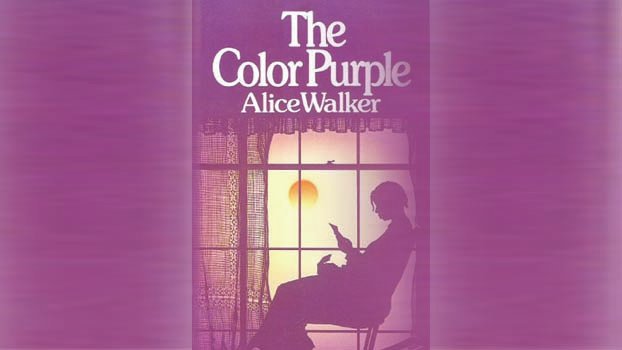Book Talk
The Color Purple
by Alice Walker

Celie is a poor, black girl in the American South of the 1930s. She is, at the age of fourteen, repeatedly raped by her father, has two children by him, and is then married off to a widower. There, she is abused, beaten, and forced to work without rest. Her sexual encounters with her husband are wretched and without passion, and she dislikes them as much as the beatings. It is at a time like this that Shug (Sugar) Avery enters into Celie’s life. Sugar is unlike other black women. She is a successful singer— independent, rich, sophisticated, well-traveled, and free-spirited. She is also Celie’s husband’s lover. Celie is forced to take care of her during an illness, and this establishes a friendship between them which later turns into infatuation, and then into love. Sugar teaches Celie that she, like every other person, deserves happiness and affection. She helps Celie to heal, to learn that her life is her own to make and that her innate worth is unquestionable, incorruptible. Alice Walker also sets up an important subplot revolving around Celie’s sister, Nettie, and her time as a missionary in Africa.
‘The Color Purple’ deals with a black woman’s struggle to free herself from a position of servitude in a male-dominated society. Celie, Nettie, Sophia, Shug Avery, each of them must fight her own battle against repression and prejudice, each of them must help themselves and each other. When it was written, ‘The Color Purple’ stirred up a storm of controversies, and Walker was accused of representing the black society in a very harsh light and tarnishing the black-male image. Later on, it won the Pulitzer Prize and is now accepted as a modern Classic.
‘The Color Purple’ is written in first person in epistolary style. In the beginning, out of despair, Celie addresses her letters to God. She does not expect anyone to read them, and she writes like she talks - in broken folk-dialect. “Dear God”, she writes, talking about her husband, “He beat me like he beat the children. He say, Celie, get the belt... It all I can do not to cry. I make myself wood. I say to myself, Celie, you a tree. That's how come I know trees fear men.” Later, she starts addressing them to her sister, Nettie. Celie’s is a unique voice that is sincere, honest and so, so touching. It paints a vivid picture of her life, and develops as she herself matures to find an inexhaustible reservoir of inner strength within her.
It is a beautiful, beautiful read. In one instance in The Color Purple, Shug Avery tells Celie, “I think it pisses God off if you walk by the color purple in a field somewhere and don't notice it”.
The color purple must be marveled at for no other reason than that it exists. Celie is like that color purple. She does not think her existence has any worth, but she eventually comes to an understanding that, “I may be black. I may be ugly. But I’m here”, and that is enough. So beautiful, so deep and stirring. The Color Purple has complex characters and complex themes, but Walker has dealt with them in a simple, honest manner. It is not a depressing read at all. In the end, we are left with the wisdom that “we are in world to love each other”, and I absolutely loved this! I recommend it.



